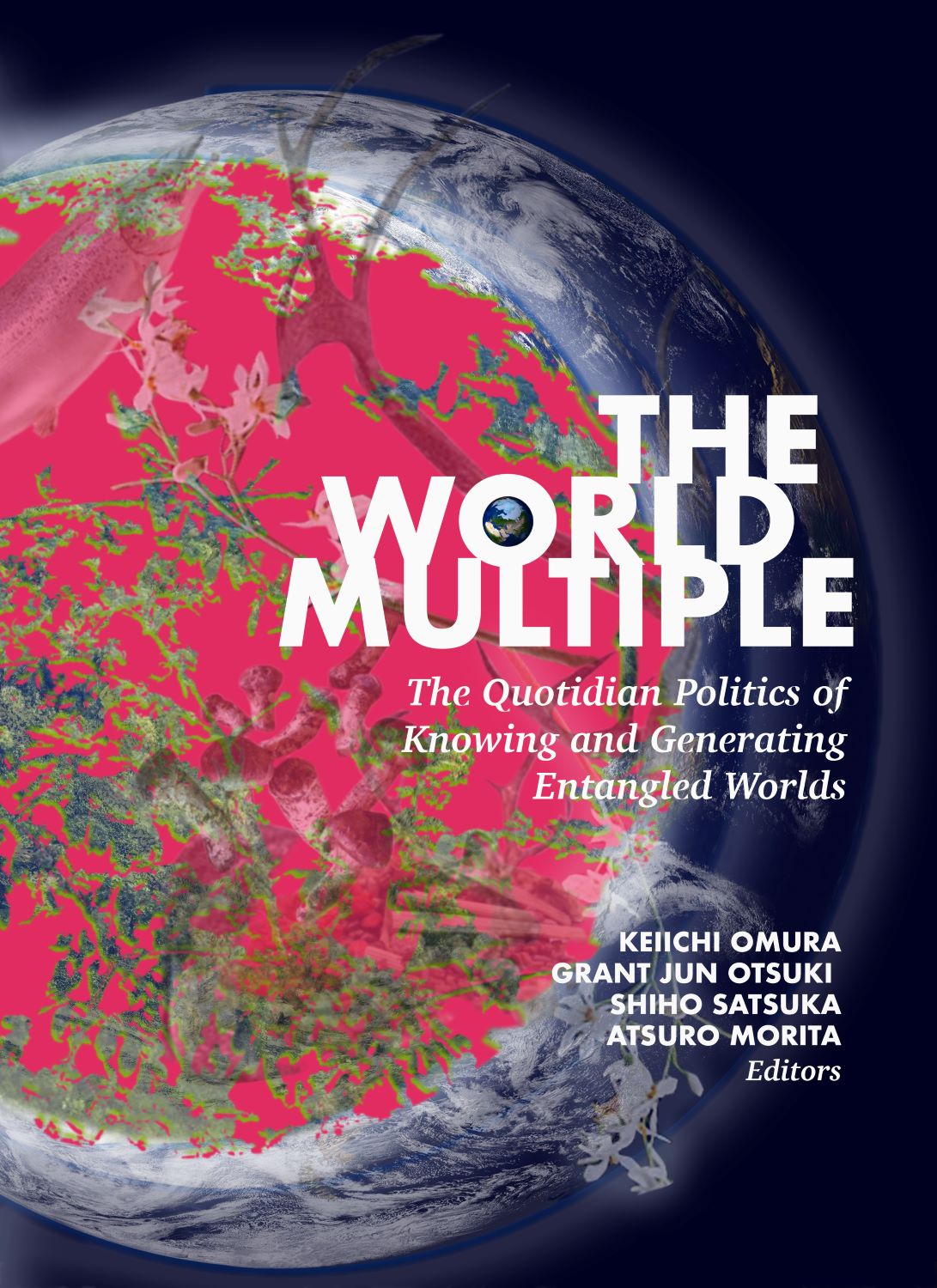
Title
1st Edition The World Multiple The Quotidian Politics of Knowing and Generating Entangled Worlds
Size
278 pages, hardcover
Language
English
Released
2019
ISBN
9781138314825
Published by
Routledge
Book Info
See Book Availability at Library
Japanese Page
The World Multiple comes out of an international symposium that was held in Japan in 2016, and it is also the title of the book which collects the contributions from many of the participants in that symposium.
The original impetus for this project was a collaborative research grant led by Keiichi Omura (Open University of Japan), which was to anthropologically examine the interactions of “modern science” and “indigenous knowledge,” through ethnographic studies from around the world, informed especially by Omura’s own studies of Inuit in the Canadian North. The binary of “modern” and “indigenous” became a departure point from which the multi-layered and complexly interconnected configurations among situated knowledges and practices could be brought into relief.
The idea at which the editors arrived to make sense of these configurations became the World Multiple. The name is connected to Annemarie Mol’s The Body Multiple. Like Mol shows in her book, we see the world multiple not as some real or imagined point where different knowledge systems converge, but something more like what a “busy intersection”: a place where a number of distinct processes intersect. In the World Multiple, this crossroads is what we call the “quotidian,” the space of the everyday in which subjects and their forms of conduct continuously transform each other. Forms of life that are simultaneously epistemological, ontological, and political encounter each other in the quotidian, colliding or interfering with each other, problematizing their distinctiveness. Sometimes, they might simply pass each other by. The World Multiple is itself part of a busy intersection, as can be seen by the proliferation of works dealing with ontological politics, the Anthropocene, and postcolonial research in anthropology. The chapters range from ethnographic discussions of what kinds of worlds emerge from mountains in the Andes, caribou in Canada’s arctic, and boulders in Chile, to conceptual chapters, as in the introduction, which examines how to think about politics from multiple worlds.
As Atsuro Morita (Osaka University) writes in the afterword to our volume, our contributors collectively helped bring into view a tension that lies at the heart of our “world.” In the world multiple, the singular “world” always implies the plural “worlds” and vice versa. As Morita puts it, the contributors highlight “the tension between the world as a relational object enacted in practice and as an “ever expanding horizon” of worlds that is, quoting Marilyn Strathern, “larger than any of its moments.”
(Written by OTSUKI Grant Jun, Associate Professor, Graduate School of Arts and Sciences / 2024)
Table of Contents
Keiichi Omura
1. Introduction
Grant Jun Otsuki, Shiho Satsuka, Keiichi Omura, and Atsuro Morita
PART I: Entangled worldings
2. Earth-beings: Andean religion, but not only
Marisol de la Cadena
3. Vertiginous worlds and emetic anthropologies
Casper Brun Jensen
4. Doing and undoing caribou/atîku: Diffractive and divergent multiplicities and their cosmopolitical orientations
Mario Blaser
5. Maps in action: Quotidian politics through boundary translational matrix for world multiple in contemporary Inuit everyday life
Keiichi Omura
6. Climate change and local knowledge in Eastern Arctic Inuit society: Perceptions, responses, and practice
Shunwa Honda (Henry Stewart)
PART II: Space-time multiplicities
7. Landscapes, by comparison: Practices of enacting salmon in Hokkaido, Japan
Heather Anne Swanson
8. Spectral forces, time, and excess in Southern Chile
Cristóbal Bonelli
9. Temporalities in translation: The making and unmaking of "folk" Ayurveda and bio-cultural diversity
Moe Nakazora
10. Healing in the Anthropocene
Stacey Langwick
PART III: Exploring quotidian politics
11. Out of nothing: (Re)worlding "theory" through Chinese medical entrepreneurship
Mei Zhan
12. Traveling and indwelling knowledge: Learning and technological exchange among Vezo fishermen in Madagascar
Taku Iida
13. Worlds apart? Reflexive equivocations in the Alto Rio Negro
Antonia Walford
14. Translation in the world multiple
Shiho Satsuka
15. A multispecies ontological turn?
Anna Tsing
Afterword
Atsuro Morita
Related Info
Reviewed by Joe Ellis (University of Cambridge) (Journal of the Royal Anthropological Institute Volume 28, Issue 4, p.1400-1401 Nov 27, 2022)
https://doi.org/10.1111/1467-9655.13859



 Find a book
Find a book

